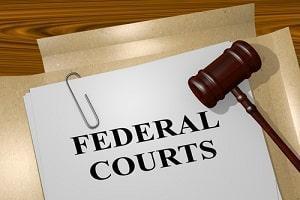Can I Face Federal Prosecution for Hacking in Texas?

The term “hacking” typically refers to a person, often called a “hacker,” gaining unauthorized access to a computer or network. In recent decades, the so-called “hacker culture” has become mainstream and even glorified. Movies like Algorithm and The Girl With The Dragon Tattoo create the illusion that hackers can easily slide under the government’s radar and get away with nearly anything. Many people are under the false assumption that hacking a computer or network is something that an individual can do recreationally with little to no chance of facing significant consequences. These individuals could not be more wrong. The federal government takes internet crimes like hacking very seriously. In some cases, hacking can lead to federal charges and prison time.
Federal Legislation Prohibiting Unauthorized Access to a Computer
Both federal and Texas laws prohibit certain computer crimes, but many computer crimes are prosecuted by the federal government. The Computer Fraud and Abuse Act (CFAA) is federal legislation that was originally intended to protect the computer systems of financial institutions and governmental entities. The scope of this law has since been expanded to include virtually every other type of computer system and server, including personally owned computers, tablets, and cell phones. A number of offenses fall under the umbrella of this legislation. Illegally accessing a computer and obtaining information from a protected computer, financial institution, or the U.S. government is a felony offense punishable by up to 10 years’ incarceration when the offense includes any of the following:
-
Committed for commercial advantage or private financial gain
-
Committed in the continuance of a criminal or tortious act
-
The acquisition of information valued at more than $5,000
The CFAA also prohibits accessing a computer for the purposes of defrauding another party, extortion, internationally damaging a computer or information, and more. In addition to the CFAA, hacking-related crimes are prohibited by the Stored Communications Act, the Electronic Communications Privacy Act, the Texas Breach of Computer Security law, and more.
Contact a Dallas Computer Crimes Defense Lawyer
Many hackers do not realize the severity of their actions until they are under investigation by the federal government. If you are being investigated for violating the Computer Fraud and Abuse Act, or if you have been charged with another computer crime, you could face years or even decades behind bars. You need an attorney who has the experience and legal knowledge needed to develop a strong defense against these serious allegations. Darlina Crowder has secured more than 300 acquittals and not guilty verdicts for criminal defendants. To schedule a free consultation with a Collin County criminal defense attorney at The Crowder Law Firm, P.C., call us today at 214-544-0061.
Sources:
https://www.justice.gov/sites/default/files/criminal-ccips/legacy/2015/01/14/ccmanual.pdf
https://statutes.capitol.texas.gov/docs/PE/htm/PE.33.htm

















